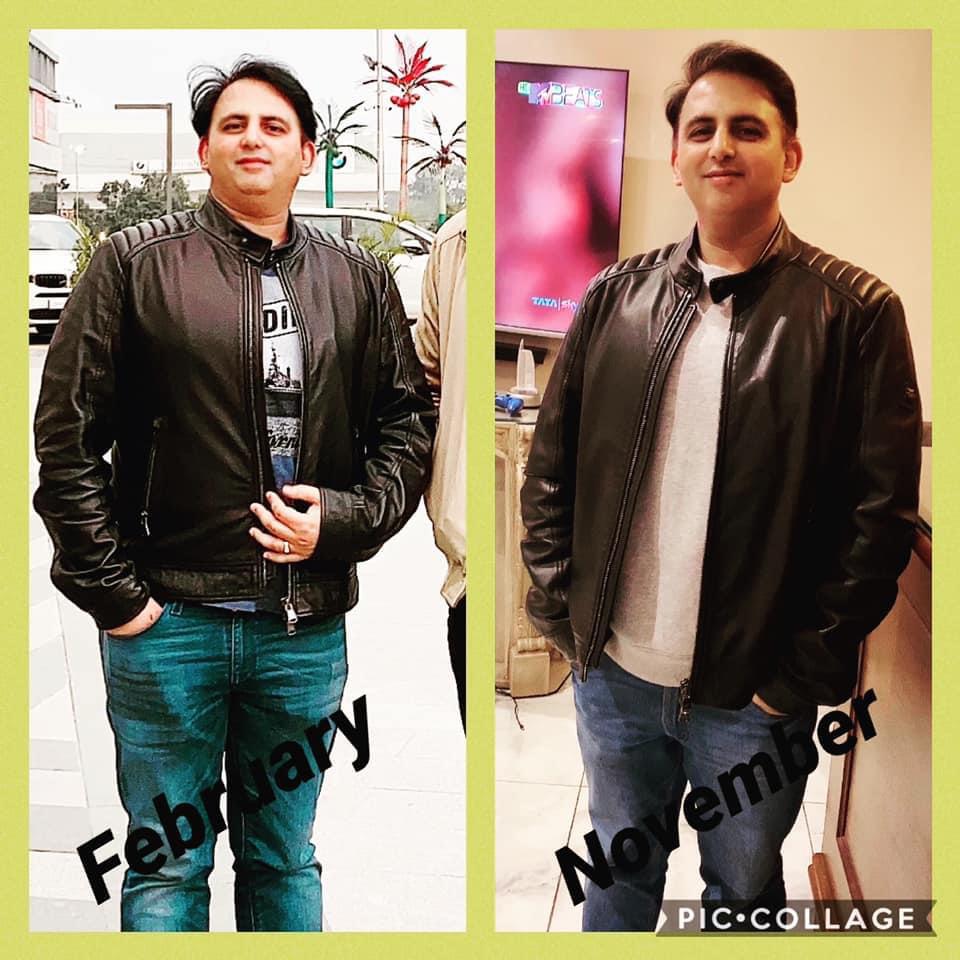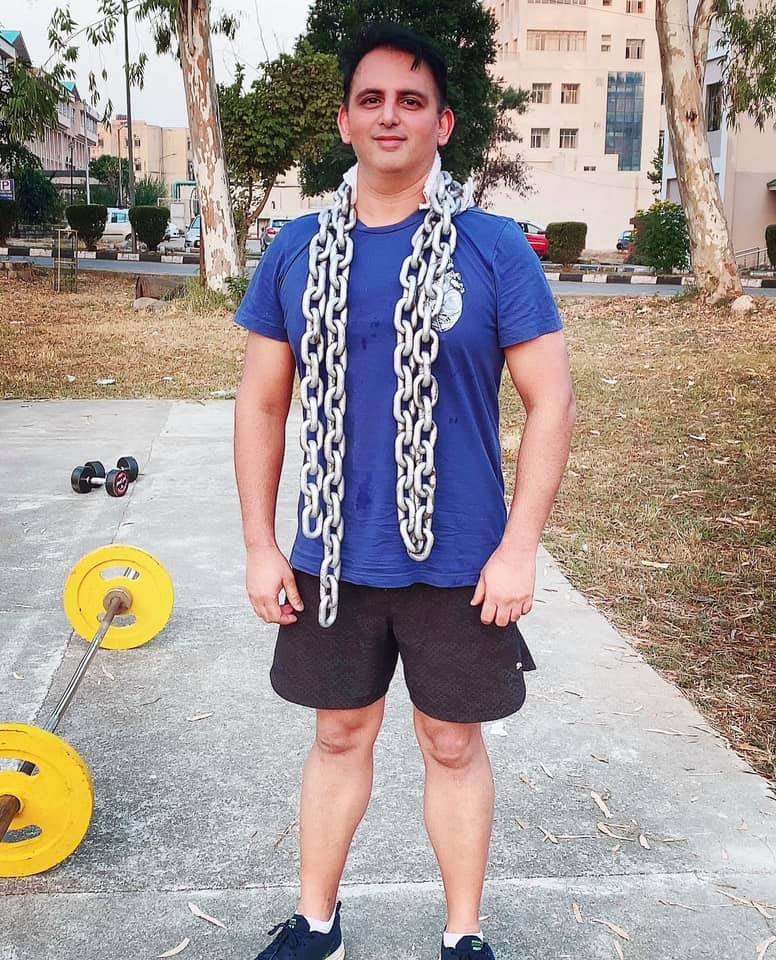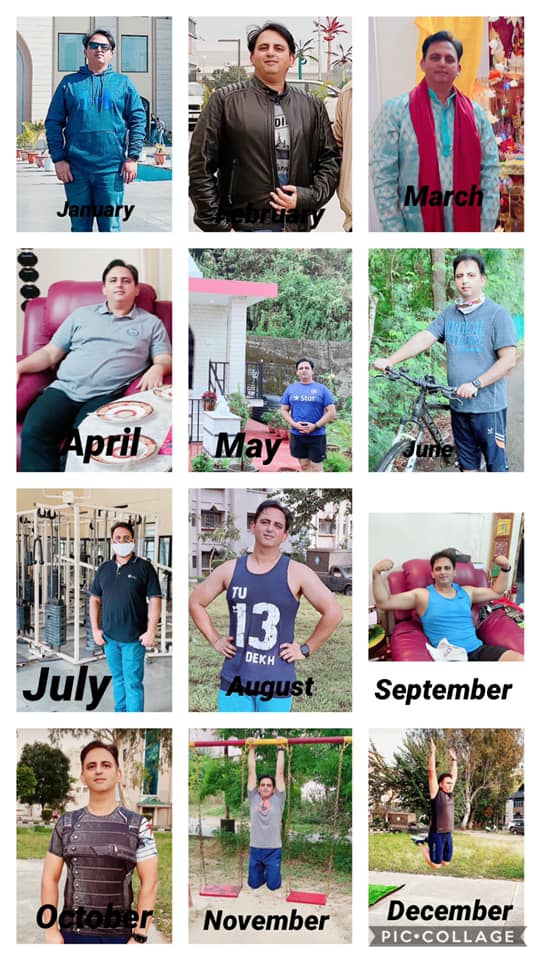While it is easy to dispense advice to others, following it is often not that easy. But Dr Mukul Kumar Bhatnagar (44), an associate professor of Cardiology from Kangra in Himachal Pradesh shed 15 kgs of weight in just four months. In doing so, he also managed to reverse the issues of high blood pressure and a fatty liver.
This was done by following a very standard diet and exercise routine. Speaking to The Better India, Dr Bhatnagar helps us understand his routine and how you can follow the same.
“I was never a very athletic person. I spent most of my growing up years immersed in books and academics,” says Dr Bhatnagar.

In 2013, after completing his Doctorate in Medicine (DM) from PGI, Chandigarh, Dr Bhatnagar took on the role of Assistant Professor of Cardiology at Dr Rajendra Prasad Government Medical College in Kangra. “Work kept me busy and it was in January 2015 that I was diagnosed with Pott’s Spine [Tuberculosis of the spine],” he shares.
Dr Bhatnagar proceeded to spend the next four months on bed rest, which was followed by anti-tubercular treatment until July 2016. “This was also a time when I started putting on weight and went from 78 kgs to 85 kgs,” he says. Thereafter he managed to maintain the weight at 85 kgs and even started a light workout routine in January 2017. With work taking up a lot of time and energy, Dr Bhatnagar says that he wasn’t even conscious of when the weight gradually increased to 90 kgs.
“In a sense, the lockdown period helped,” he says. At the start of the lockdown, Dr Bhatnagar’s weight had peaked at 93 kgs and that was when his blood pressure was also on the higher side. He was also struggling with fatty liver disease with high levels of cholesterol. “Not wanting to immediately start on medication is what pushed me to take control and lose weight,” he adds.
Dr Bhatnagar’s routine

Dr Bhatnagar wakes up at 4.45 am to a mix of honey, lemon with almonds and walnuts. This is followed by a one hour walk post which he spends half an hour on HIIT (high-intensity interval training) or weight training.
His breakfast usually consists of paratha, peanut butter with brown bread, bread omelette, boiled eggs, oats/muesli with milk, moong dal cheela. At midday around 11.00 am, Dr Bhatnagar has a cup of adrak [ginger] tea / lassi/ chaach [buttermilk] or coconut water.
Lunch includes two rotis along with ample green vegetables, dal, curd, salad, and rice. This is followed by green tea and prunes at around 2.00 pm and a cup of adrak tea at 4.00 pm.
Since Dr Bhatnagar has been following intermittent fasting, he says that his dinner is done by 5.00 pm every day. It consists of poha, idli, dosa, dalia, dhokla, khichri, cheese sandwich with sprouts and sometimes even fruit servings.
Post an early dinner, Dr Bhatnagar spends an hour cycling and another two hours walking. “I have always believed in early to bed and early to rise. It has done me a world of good,” he adds.
Pro tips from the doc

- The doc says to make an exercise plan and stick to it. Come rain or sunshine, Dr Bhatnagar says that he would be outdoors getting in the required number of steps each day.
- Find like-minded people who are looking to lose weight and get fit. He says that even if you are on your own, do it for yourself and find a way to motivate yourself.
- Look for small milestones and parameters that you can constantly check and celebrate. Even if the weight is not immediately dropping, there might be inch loss or your blood markers might improve with consistency.
- Continue the routine long enough to turn it into a habit. He adds that once that happens, even if you need to exercise on your own, you will find a way to do it.
- Focus on eating clean, nutritious meals. Do check with your doctor on whether you can follow a particular diet. Dr Bhatnagar adds here that while he follows intermittent fasting, it is not advisable for those who are diabetic to follow this method.
- Increase your vegetable and dal intake and try to reduce the carbohydrate intake. Continue to eat every fruit and vegetable that are seasonal and freshly available.
- Stay away from cold storage fruits and vegetables and also processed food.
For more motivation, you could also follow Dr Bhatnagar’s Facebook page.
(Edited by Yoshita Rao)
No comments:
Post a Comment